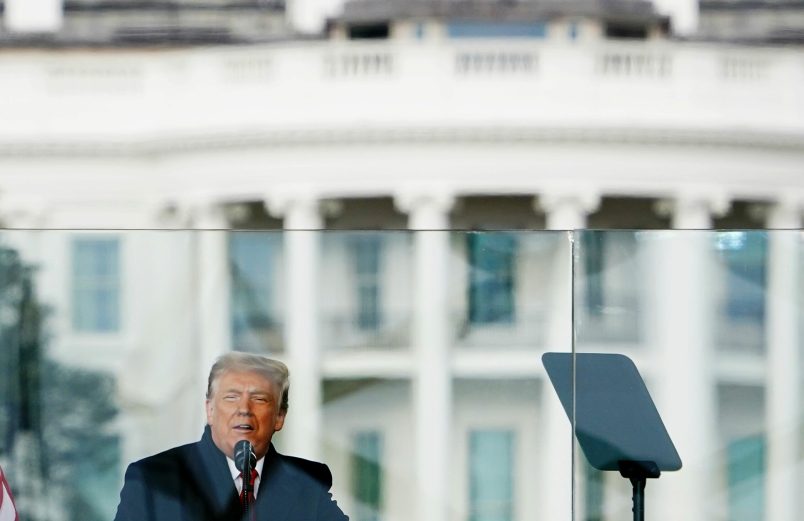The National Archives will give the Jan. 6 Committee its first few documents from the Trump White House this evening, absent a court order.
Trump has sued to block the archives from releasing documents from the first three tranches of records that archivists have identified as relevant to the committee’s subpoena. Courts have agreed to freeze the release of those tranches, even after Trump has lost the case at the district and appellate court levels, pending his ongoing appeal to the Supreme Court.
Now, Justice Department officials say in court filings that an additional fourth tranche — containing a whopping four documents — is not covered by the rulings that freeze release of the initial three.
If a court doesn’t block release by 6:00 p.m. Wednesday, the Department said, the records will be released.
“To date, the former President has not sought such an order from the district court or this Court,” Acting Assistant Attorney General Brian Boynton wrote in a Tuesday filing. “Absent an intervening court order, the Archivist intends to release records from the fourth tranche to the Committee at 6:00 pm tomorrow.”
Trump’s attorneys have, with typical bombast, threatened to go on the offensive if the National Archives releases the records, stating they would seek to hold the DOJ “in contempt for violating the injunction.”
Trump has asked the Supreme Court to block all releases of documents from the National Archives to the Committee, but the high court has yet to issue a ruling.
“Their letter is nothing more than an attempt to proactively build a defense to prospective contemptuous conduct,” Trump’s attorneys wrote of the DOJ.
Jesse Binnall, the attorney representing Trump in the case, also wrote that the DOJ’s “strategy can only be interpreted as an attempt to interfere with this Court’s and the Supreme Court’s jurisdiction.”
In a Wednesday filing, the DOJ hit back at Trump, saying: “the release of certain records from tranche four — that Appellant has known for over a month would occur today — will not violate any order of any court.”
The release of hundreds of pages of documents in the first three tranches remains frozen, pending a decision by the Supreme Court.



